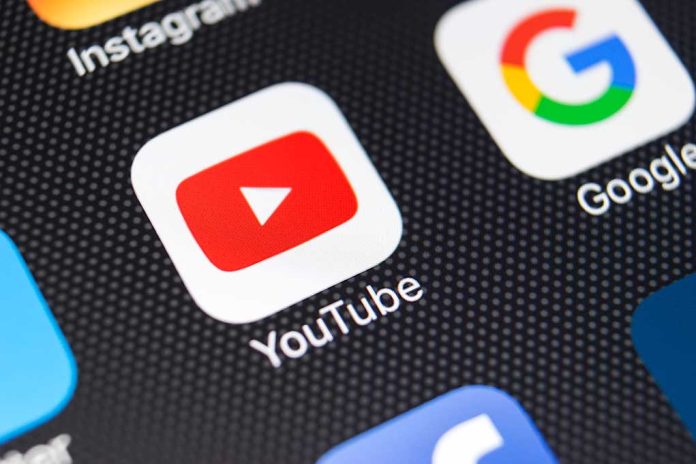
YouTube has finally shut down the money pipeline for channels creating fake movie trailers with AI, forcing content thieves to find a new way to exploit Hollywood’s intellectual property.
Key Takeaways
- YouTube has suspended ad revenue for channels creating AI-generated fake movie trailers, including Screen Culture and KH Studio, following a Deadline investigation.
- The affected channels had massive followings—Screen Culture alone had 1.4 million subscribers—and were profiting by misleading viewers with convincing fake trailers of upcoming films.
- Hollywood studios previously claimed ad revenue on these fake trailers instead of enforcing copyright, a practice SAG-AFTRA condemned as threatening to human creative work.
- YouTube’s monetization policies require significant original content and prohibit misleading, technically manipulated material designed solely for views.
- The crackdown represents a victory for intellectual property protection and viewer trust in an era of increasingly sophisticated AI manipulation.
YouTube Takes Bold Action Against AI Deception
In a significant move to protect intellectual property rights and restore viewer trust, YouTube has demonetized multiple channels specializing in AI-generated fake movie trailers. The action targets several popular channels including Screen Culture and KH Studio, along with their alternative accounts Screen Trailers and Royal Trailer. These channels had built substantial audiences—Screen Culture amassed 1.4 million subscribers while KH Studio gathered 724,000—by creating deceptively realistic “concept trailers” for highly anticipated films that don’t actually exist in the form presented.
The enforcement comes after a thorough investigation by Deadline exposed the extent of these misleading practices. YouTube confirmed its stance on the matter with a clear message about the scope of their enforcement efforts.
“Our enforcement decisions, including suspensions from the YouTube partner program, apply to all channels that may be owned or operated by the impacted creator,” said Margot Robbie
Fake Trailers Creating Real Problems
The suspended channels had perfected a formula for generating views and revenue through counterfeit content. Screen Culture became notorious for creating trailers that closely mimicked official marketing for franchises like The Fantastic Four and Superman, utilizing AI imagery that could easily fool casual viewers. KH Studio took a slightly different approach, creating imaginative versions of films that don’t exist, such as James Bond movies starring Henry Cavill and Margot Robbie. Both strategies violated YouTube’s monetization policies, which explicitly state that content creators must significantly transform borrowed material.
Perhaps most troubling was the previous response from some major Hollywood studios. Rather than enforcing copyright claims against these channels, companies like Warner Bros. Discovery and Sony simply claimed the ad revenue generated by these unauthorized uses of their intellectual property—effectively profiting from the deception rather than stopping it.
Defending Human Creativity in the AI Era
The actors’ union SAG-AFTRA has been particularly vocal about the dangers posed by these fake trailers, especially when studios chose to monetize rather than remove them. The union’s statement highlights the broader concern about AI undermining the value of human creative work in the entertainment industry.
“Monetizing unauthorized, unwanted, and subpar uses of human-centered IP is a race to the bottom. It incentivizes technology companies and short-term gains at the expense of lasting human creative endeavor,” said Sag Aftra
YouTube’s decision represents a significant victory for creators and helps preserve the integrity of the platform as a place for authentic content. The demonetization of these channels sends a clear message that there are consequences for misleading viewers and misappropriating intellectual property, even as AI tools make such deception increasingly sophisticated and accessible. This enforcement action demonstrates that major tech platforms like YouTube recognize their responsibility to protect both the creative industry and their users from exploitation and misinformation in this rapidly evolving digital landscape.



